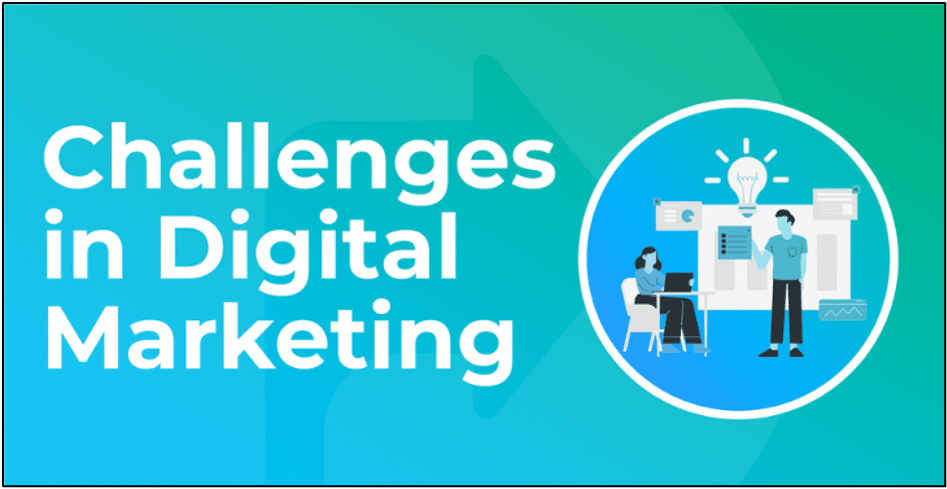In the modern era, businesses heavily depend on successful digital marketing tactics to connect with their desired audience and foster expansion. Yet, maneuvering through the constantly changing terrain of digital marketing poses its own set of obstacles. From frequent alterations in algorithms to the evolving preferences of consumers, businesses must constantly adjust their strategies to maintain a competitive edge. This article delves into the common hurdles encountered by digital marketing agencies like Authority Ventures and offers solutions to surmount them.
Understanding the Digital Marketing Landscape:
Digital marketing involves various platforms such as social media, SEO, email marketing, and content marketing, among others. Each platform presents unique advantages and challenges for marketers. As consumers increasingly allocate their time to online activities, digital marketing has become vital for businesses seeking to retain a competitive advantage.
Challenges in Digital Marketing Strategy:
Algorithm Changes:
Platforms like Google, facebook and instagram networks frequently update their algorithms, impacting how content is discovered and displayed. Marketers must stay informed about these changes and adjust their strategies accordingly to maintain visibility. They can take guide from InstaNavigation in staying updated.
With algorithms constantly evolving, it’s crucial for digital marketers to keep a close eye on industry updates and adapt their strategies accordingly. This might involve refining keyword targeting, optimizing content for featured snippets, or adjusting ad placement to align with algorithm changes.
Content Saturation:
With the proliferation of content online, standing out from the crowd can be challenging. To address the issue of content saturation, marketers need to prioritize crafting compelling and valuable content that truly connects with their intended audience. This might entail thorough keyword research to pinpoint topics with significant search interest and minimal competition. Alternatively, marketers can harness user-generated content to stimulate interaction and authenticity.
Data Privacy Regulations:
Stricter data privacy regulations, such as GDPR and CCPA, have tightened restrictions on how businesses collect and use customer data. Marketers must ensure compliance while still delivering personalized experiences to consumers.
In response to data privacy regulations, digital marketers should prioritize transparency and consent in their data collection practices. This may involve implementing clear privacy policies, obtaining explicit consent for data processing activities, and providing users with control over their personal information.
Ad Fatigue:
Consumers are inundated with advertisements across various platforms, leading to ad fatigue. Marketers must find creative ways to capture attention and deliver value without overwhelming their audience with ads.
To combat ad fatigue, digital marketers should focus on delivering targeted, relevant ads that provide genuine value to their audience. This could involve segmenting audiences based on demographics or interests, retargeting users who have already shown interest in your products or services, or experimenting with native advertising formats that seamlessly integrate with the user experience.
ROI Measurement:
Measuring the return on investment (ROI) of digital marketing efforts can be challenging, especially with long sales cycles and multiple touchpoints. Marketers need robust analytics tools to accurately track and evaluate campaign performance.
To overcome challenges in ROI measurement, digital marketers should implement a comprehensive analytics strategy that tracks key performance indicators (KPIs) across the entire customer journey. This may involve setting up conversion tracking for website interactions, implementing multi-touch attribution models to credit conversions to the appropriate marketing channels, and leveraging advanced analytics techniques such as cohort analysis to gain deeper insights into customer behavior.
Strategies for Overcoming Challenges:
Stay Agile:
In a rapidly changing digital landscape, agility is key. Marketers should be prepared to pivot quickly in response to algorithm changes or emerging trends. Regularly monitor industry news and metrics to stay ahead of the curve.
Focus on Quality Over Quantity:
Instead of churning out content at a rapid pace, prioritize quality over quantity. Invest in creating valuable, relevant content that resonates with your audience and encourages engagement.
Transparency and Consent:
Establish credibility with your audience by openly disclosing your data collection and usage policies. Ensure you obtain explicit consent before gathering any personal data and offer straightforward options for opting in or out.
Diversify Your Approach:
Don’t rely solely on one channel or tactic for your digital marketing efforts. Diversify your approach across multiple channels to reach a wider audience and mitigate the risks of algorithm changes or platform shutdowns.
Track and Analyze Metrics:
Make use of powerful analytics software to monitor the effectiveness of your digital marketing campaigns. Assess essential metrics like conversion rates, click-through rates, and customer lifetime value to evaluate the impact of your strategies.
Conclusion:
Although digital marketing poses its own set of challenges, businesses can overcome them and achieve success with the appropriate strategies and mindset. By remaining flexible, emphasizing quality, placing transparency at the forefront, diversifying tactics, and utilizing analytics effectively, marketers can surpass obstacles and reach their objectives in the digital sphere. It’s essential to remember that adaptability and innovation are crucial for thriving in the constantly evolving digital landscape.
